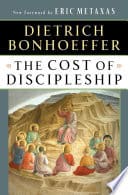In Butler, Pennsylvania, on July 13, a failed assassination attempt against Donald Trump left supporters and critics alike contemplating the implications.
Comparisons were swiftly drawn to historical figures like Reagan and Pope John Paul II, whose survival from similar attacks was seen as a divine intervention.
Trump’s subdued presence at the Republican National Convention hinted at a man profoundly affected by the ordeal. As he addressed the nation, the rhetoric reflected on fate and providence.
“Perhaps this is God’s way of ensuring my mission continues,” Trump suggested, echoing sentiments of divine purpose.
The incident has fueled debates within the political and religious communities. Supporters argue this near-miss is a sign of divine favor, reinforcing their belief in Trump’s unique role in leading the nation.
Critics remain skeptical, viewing the narrative as a strategic move to garner sympathy and strengthen his base.
Religious leaders and political analysts continue to dissect the event’s significance. Some see it as a rallying cry for faith-based voters, while others caution against conflating political ambition with spiritual destiny.
As Trump moves forward, the question lingers: Was this a mere coincidence or a moment of divine intervention meant to solidify his place in history?
The nation watches, ponders, and waits for the unfolding of what could be a pivotal chapter in American politics.

















Leave a Comment